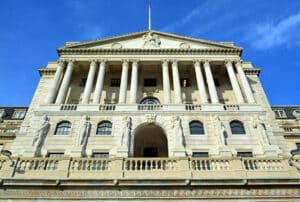Find out why your money isn’t safe with most retail banks and discover secure money management strategies.
Unless you have been living under a rock in the last few weeks, you have probably heard that two American banks have gone out of business.
Silicon Valley Bank was the 16th largest US bank. Signature Bank was smaller.
Credit Suisse has had to borrow money from the Swiss Central Bank, and should avoid the same fate.
This is the biggest banking crisis since 2008. I don’t expect the banking crisis, this time, to get out of control.
However, these stories should remind us all that having money in cash in the bank isn’t that safe.
On this article I will explain some reasons for that .
1. Banking is a confidence game
The banks take money in, paying as little as possible for it, and lend it out, charging as much as possible for it. There is always a danger that you will get bank runs.
In comparison, if you own assets, you at least hold ownership over those said assets.
If you own a house , even if it is on mortgage, and the bank goes out of business, you still own the property.
Likely, you will merely have to repay the institution that takes over the old banks book of business.
Likewise, nearly all investment platforms don’t personally hold your money. Therefore, if they go out of business, your money won’t be at risk.
What is more, investment providers like Vanguard and BlackRock don’t have the same debt/leverage models as the banks.
BlackRock has 10 trillion USD assets under management, and therefore is much bigger than most “too big to fail banks”.
2. It is wrong to hope for government bailouts and guarantees
In many developing countries the governments can’t guarantee bank deposits.
Even when they can in developed countries, it isn’t a free lunch.
In 2008, the banks were saved, but governments needed to stimulate the economy.
In most countries, this resulted in weaker currencies, and interest rates which were below inflation for close to two decades.
If you would have put your money in most European, British or American banks just before 2007-2008, your money would now be worth about 50% less, due to losing out by 2%-3% per year to inflation.
With lockdown bills, ageing populations and more radical populist governments being elected, it isn’t even clear that governments can be relied upon to protect depositors during the next crisis, whenever that happens.
That isn’t to mention that depositors lost billions when banks in Cyprus went under. The European courts dismissed compensation claims five years ago as reported by Reuters.
3. Too big to fail
Many people have became aware of the previous points, so have decided to put their money into “too big to fail banks”, even if they dislike how these institutions behaved before 2008.
Whilst the failure of these institutions is less likely than small and medium-sized banks, there is a lot of hidden risk in the system and the inflation issue can’t be mitigated either.
That doesn’t mean we should avoid the banks entirely. We all need to bank with a traditional provider or an electronic money institute to pay bills.
It does make sense to have an emergency surplus of money. I don’t think this crisis will become like 2008, but I could be proved wrong.
What I am convinced about is that money in the bank isn’t safe, due to inflation and the fact that the next crisis will happen one day.
It is far better to rely on long-term orientated assets, which can’t be lost due to one institution going down.
They might go up and down, but that doesn’t make them less safe.
Pained by financial indecision? Want to invest with Adam?

Adam is an internationally recognised author on financial matters with over 830million answer views on Quora, a widely sold book on Amazon, and a contributor on Forbes.




financial freedom
WORLD’S FIRST KINETIC BASED TO REDUSE THE IMPACT OF THE WORLD’GLOBAL CLIMATE CHANGE
My son and i have a property in Brisbane and after 10 years we are still paying the bank for the loan we got from the bank .
I want us to pay off the loan before we buy another property and wants your advise if that is the correct option.
It depends on the maths. How high is the interest rate?